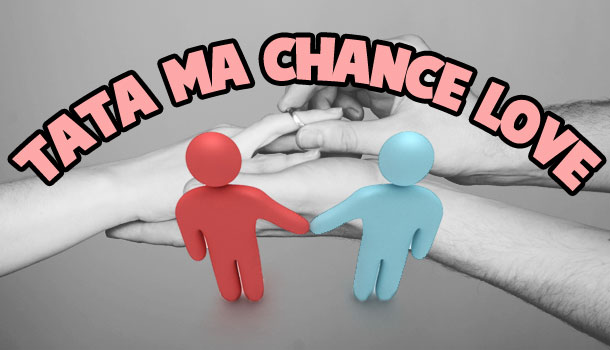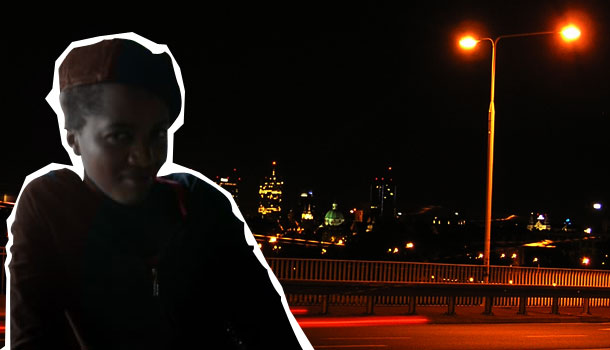Long before P Square and Akon had made that risqué endorsement of gold-digging, insisting that “she must chop my money!”, and even before Ridge Forrester had gone down on his knees for the umpteenth time to propose to Brooke in The Bold and the Beautiful, the Johannesburg Casanova had already reconfigured the flirting game. Thanks to this change of rules, most women in South Africa have had the displeasure of having The Question popped at least a few times, often from the most ‘unlikely’ quarters. It is not the most affirming experience and in fact, the other extreme of this trend manifests in horrendous ways. But that is a conversation for another day.
My friends and I have christened this trend tata ma chance love, in honour of a long-running lottery advert which encourages people to ‘take a chance’ because ‘one day is one day’. In a similar vein, these men try their luck ‘just because’. It is a democracy mos. Unlike mainstream lotto players though, these men have neither the expectation nor the desire to win. In fact, ‘winning’ this Casanova lotto would be rather like Lucky Kunene (Rapulana Seiphemo) getting shot with real bullets by Blakkie Swart during the making of the movie Jerusalema. It would attract the same degree of scandalised shock as Taffy’s in Caribbean author Earl Lovelace’s novel The Dragon Can’t Dance.
One day, Taffy, a man from a slum suggestively called Calvary Hill, declared himself to be Christ and, put himself up on a cross, and told his followers: “Crucify me! Let me die for my people. Stone me with stones as you stone Jesus, I will love you still.” And when they started to stone him, he got vexed and started to cuss: “Get me down! Get me down! Let every sinnerman bear his own blasted burden! Who is I to die for people who ain’t have sense enough to know they can’t pelt a man with big stones when so much little pebbles lying on the ground.” You see, like Taffy’s flirtation with the crucifixion, the Casanova lotto winnings lie in the make-believe rewards of a chuckle, a smile, a laugh, a playful friendliness from a familiar-stranger. The Freedom Charter neglected to put it in writing, but the people shall flirt.
I have had The Question popped countless times. Very unceremoniously. No bent knees. No rings. No ridiculously perfect bouquet of flowers. No candlelit dinner. No Enrique Iglessias crooning syrupy songs dripping with sticky sweet Spanish love like wild honey. Nothing cliché. No. All my roadside proposals have been simple, point-blank, no-frills affairs, in true tata ma chance tradition; whose vocabulary ranges from variations of “Ngiyakuthanda sweetness” (I love you) to the Twitter-compliant “Ushadile?” (Are you married?), which stays safely under 140 characters, to “Fanele si’shade s’thandwa sam” (We should get married, my love). Often without preamble, often from strangers who have known me for all of fourteen seconds. These amorous grooms are men of few words. They have stuff to do and proposals to make. So they have long dispensed with such bourgeoisie niceties like greetings and getting to know their bride-never-to-be.

My strangest tata ma chance proposal came from a parking attendant at the corner of Jorrisen and Henri Streets, in Braamfontein, Johannesburg, across the road from the Senate House entrance into Wits University. It happened on a sunny October morning, as I walked from my flat a few metres away to campus, like I did every morning just after 8am. I often saw this parking attendant, whose name I never got to know; and we often exchanged polite greetings – a quiet nod, a wave of the hand, sometimes a “hi” or “hello” (me) “Sawubona sisi” (him on a formal note), “Hello ma’darl’in” (him on a playful note).
On this October morning, I nod at him from across the road as I walk past, and he says, “Hey, my sister! Linda kancinci!” I stop, and wait a bit as requested, slightly puzzled at what I imagine is an unprecedented request for some coins; a request which will most likely involve a complicated tale of an urgent trip to Krugersdorp, inadequate money for the taxi and a sick child. I have heard infinite versions of this tale before. For me, the bottom line is that the narrator needs the money. Whether the story is convincing or even true at all, is immaterial. I mentally check my purse to see if I have any money to share. I know there will be no trip to Krugersdorp, and in fact, my coins are likely to make a welcome contribution towards a nice cold Black Label dumpie at that shebeen down the road. By now he has walked across the road to my side. He stops in front of me, looks me straight in the eye, and says, “Asishade sisi.” A confused “Mmmh?” is all I manage. He repeats: “Ngithe asishade.” (I said let’s get married.) Straight-faced. Not a smile in sight.
Now, there must be many possible responses to a slightly unexpected marriage proposal from a parking attendant (whose name you don’t know) at 8:06am on a sunny Wednesday morning in October; when your mind is busy trying to figure how to fix that chapter in your dissertation which, your supervisor declared, has no argument. When you are in the middle of pondering whether you are so clever or so domkop that you can write 46 pages of argument-free waffle, it is hard to give the correct answer to a parking-lot proposal, with only the Johannesburg morning traffic for a soundtrack. There is something to be said for the inspiring power of Enrique Iglesias promising to “be your hero baby” or Linda Ronstadt declaring “I don’t know much, but I know I love you…” after all, syrupy or not.
But as they say, when in doubt, keep it simple. So, I return his unsmiling gaze and say, as straight-facedly, “Yes. Let’s get married. Today.” His turn to be briefly scandalised, a la Taffy. I’ve just shot Lucky Kunene with real bullets. “Yes” is clearly not the answer he had in mind. I was supposed to play the usual script of “No, I have a boyfriend” to which he would reply “It is fine, I don’t mind” in true Casanova-lotto player spirit.
“Yes; today” was clearly a possibility he hadn’t considered. But he quickly bounces back from my humorous subversion of the official script and bursts out laughing. Hard. So hard, he bends over and slaps his thighs, too amused. Then he straightens up and waves me off. “Hayi, suka! Khaugqibe isikolo kuqala, then ngizokushada,” he says as he walks off, shaking his head, amused at this ridiculous student. (Get off! Go and finish school first then I will marry you.)
Where do you find a comeback to that? As I walk into campus, one useful Nollywood phrase comes to mind: “It is so bad, it is worse.”
Grace A. Musila is a Kenyan who studied in South Africa.


